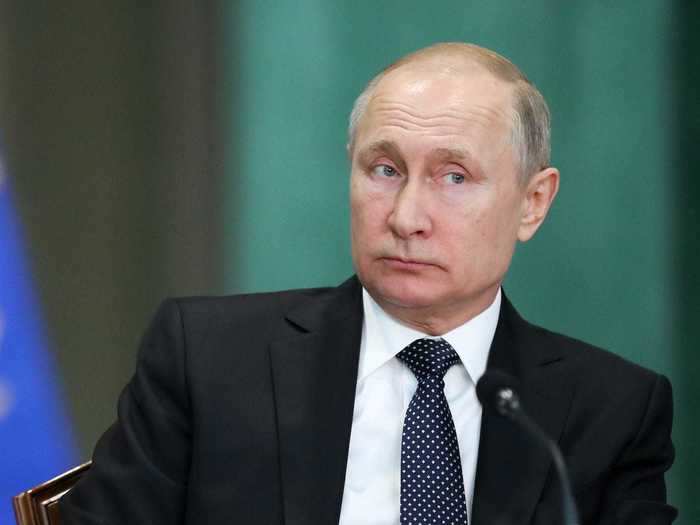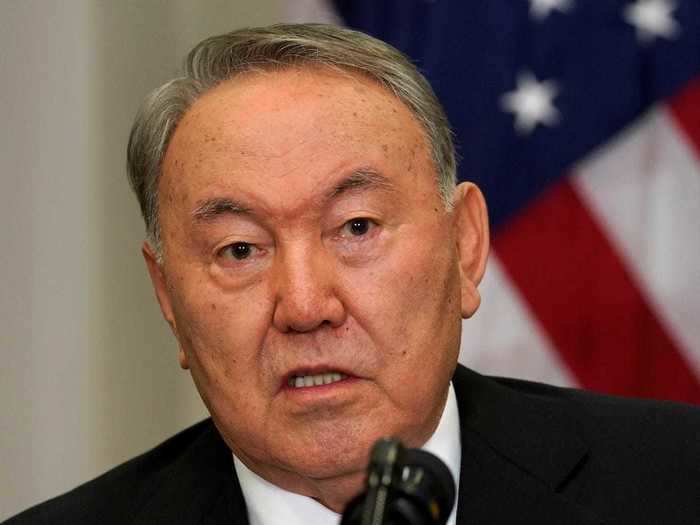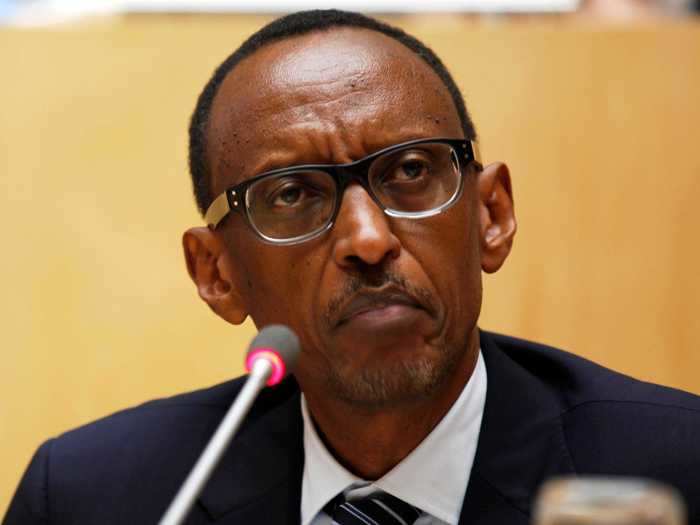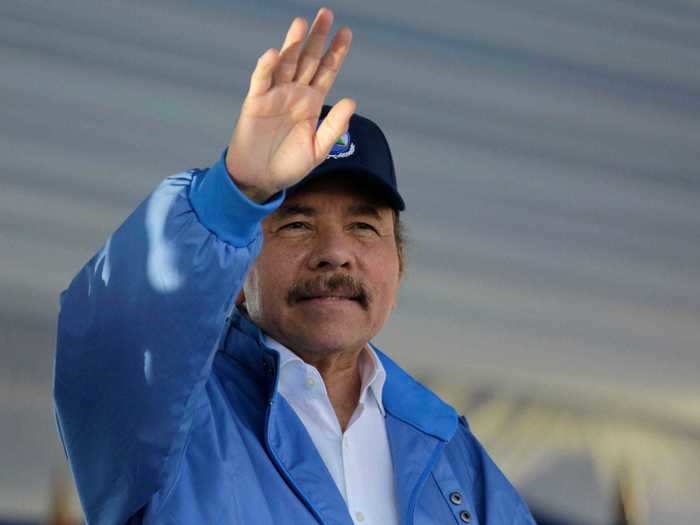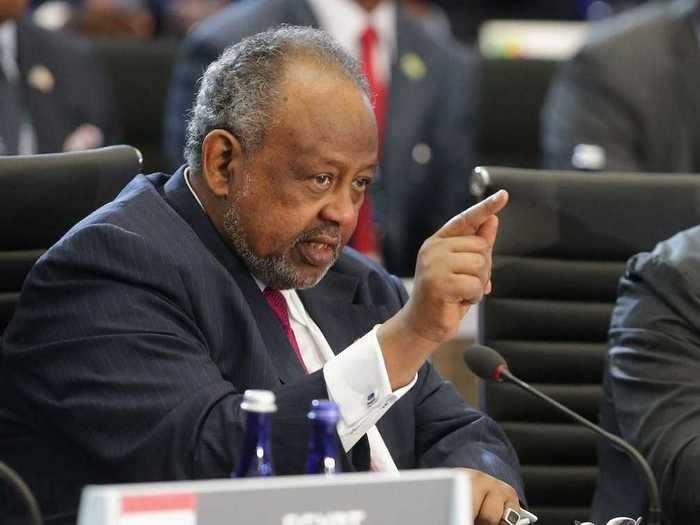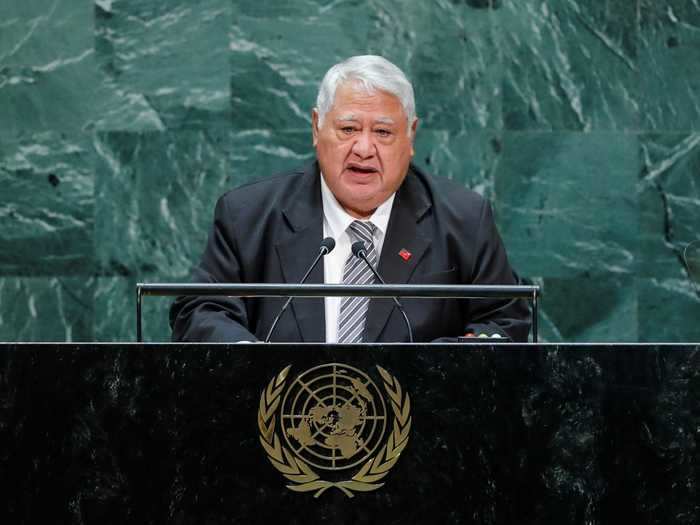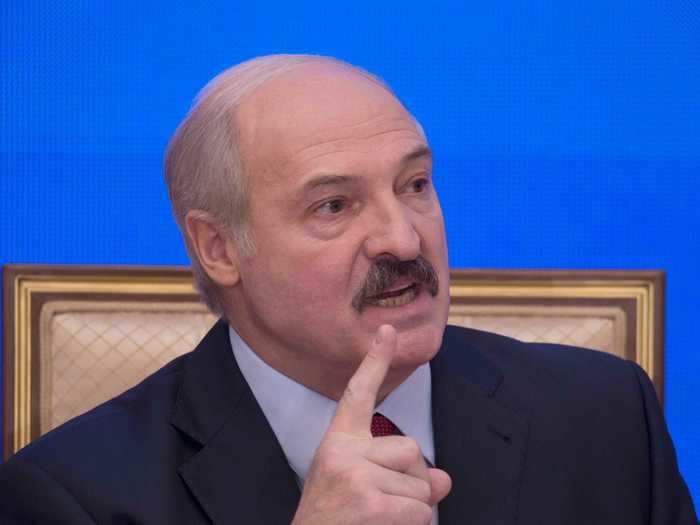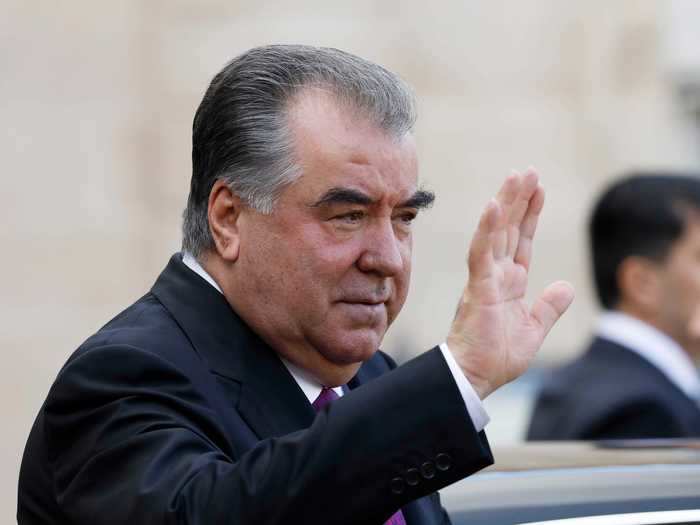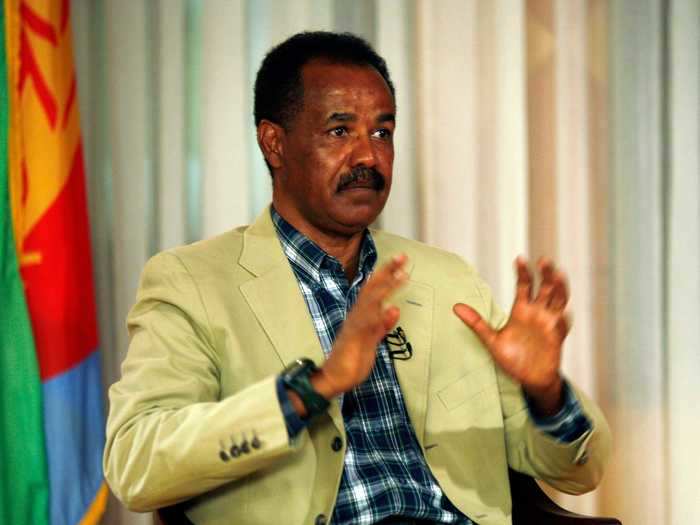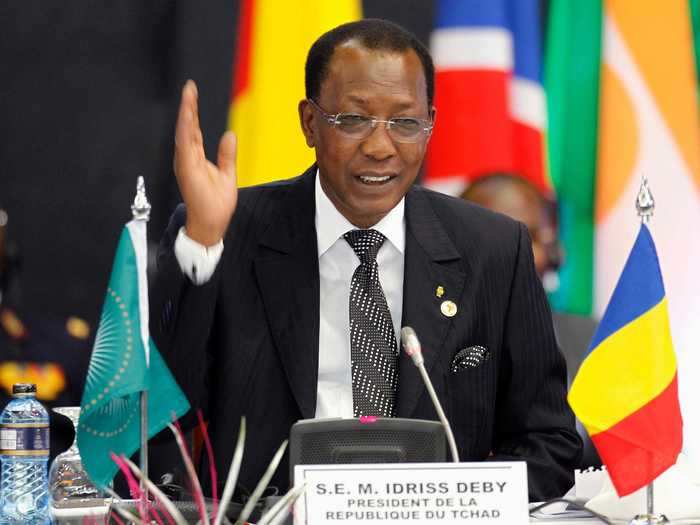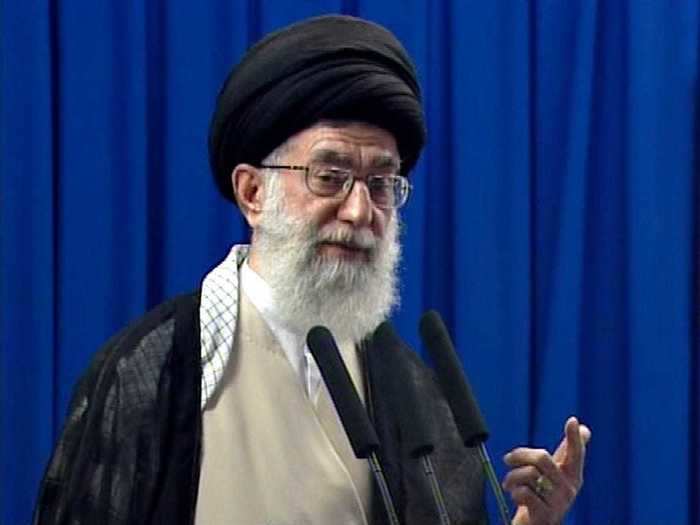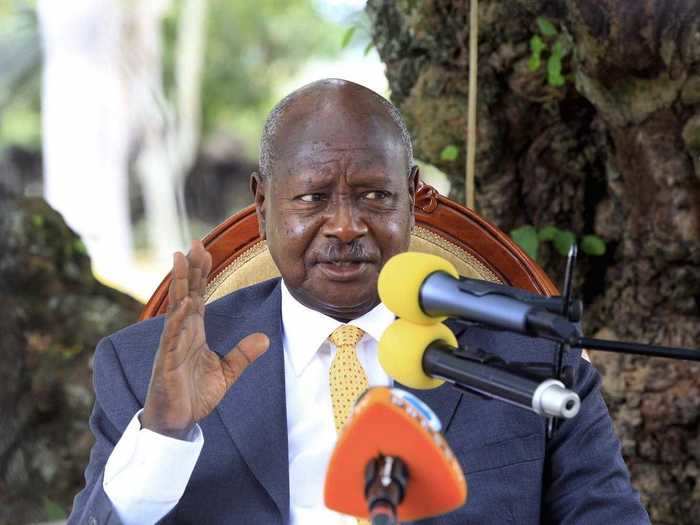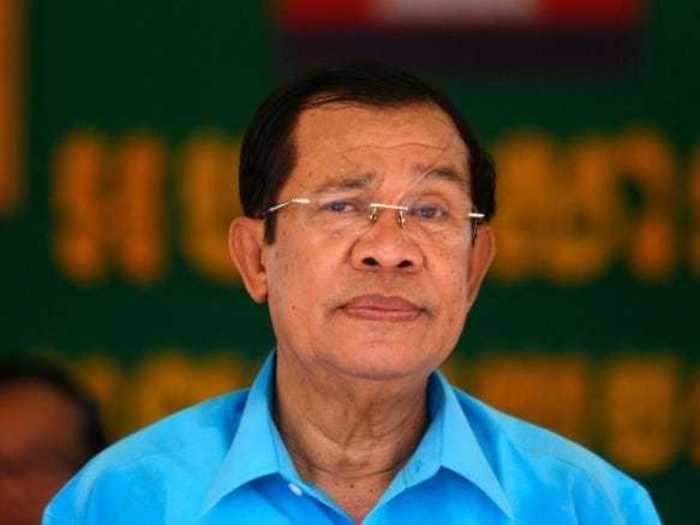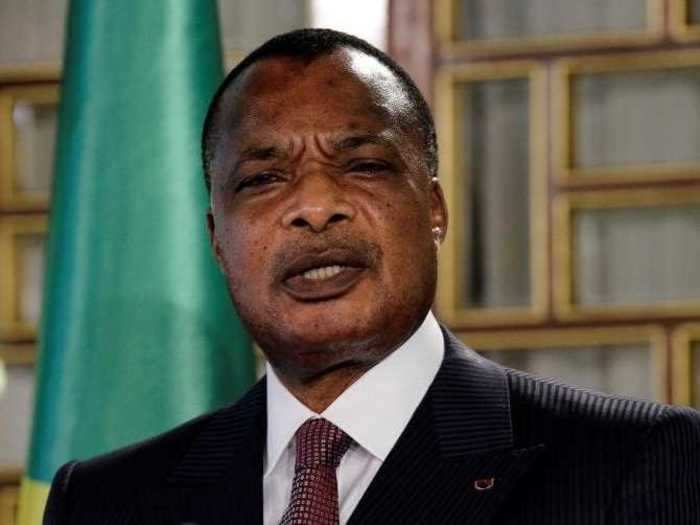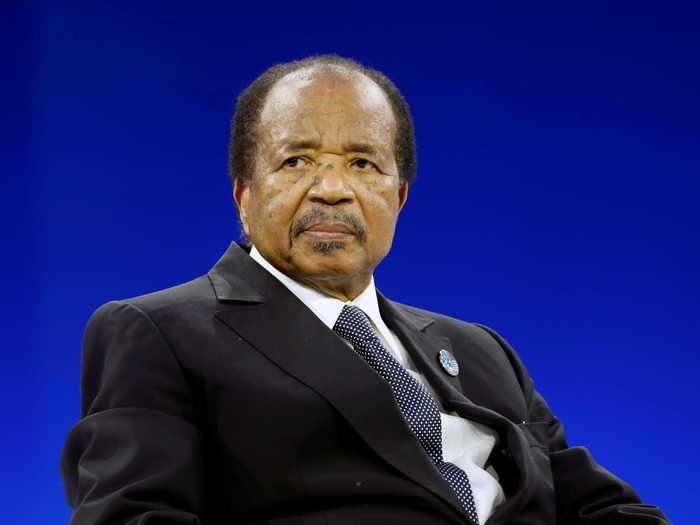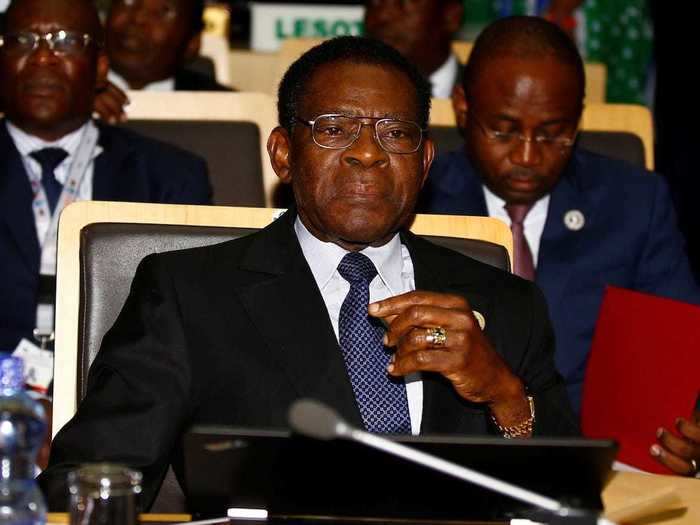Yoweri Museveni, Paul Biya, and Vladimir Putin.James Akena/Charles Platiau/Reuters/Sergei Savostyanov/Getty Images
- In a national referendum, Russians overwhelming voted in favor of constitutional amendments that would allow Putin to extend his administration through to 2036, giving him the potential to become one of the world's longest-serving leaders.
- Yoweri Museveni has been the president of Uganda since 1986.
- Ayatollah Ali Khamenei, Iran's supreme leader, has been in power since 1989.
Although many countries have fixed terms for how long a leader can stay in power, other nations, like Iran, Cameroon, and Uganda, have leaders who have ruled for decades.
This week, Vladimir Putin was declared victorious in a Russian vote on a referendum that would allow him to potentially remain in power for another 16 years, bringing his total time in office to 32 years.
In Iran and Uganda, Ayatollah Ali Khamenei and Yoweri Museveni, respectively, have been leading their countries since the '80s, and have ruled in five consecutive decades.
Take a look at the world's longest-serving leaders.
Vladimir Putin has been the president of Russia since 2012. He previously held the position from 2000 to 2008.
Vladimir Putin.
Sergei Savostyanov\TASS via Getty Images
This week, Putin won a referendum on constitutional changes that would allow him to remain in power until 2036. The results of the vote were published five hours before the polls closed, causing critics to question its legitimacy, according to The Independent.
Nursultan Nazarbayev was the president of Kazakhstan from 1990 until 2019.
Nursultan Nazarbayev.
Kevin Lamarque/Reuters
Nazarbayev was the first president of Kazakhstan. In 1991, under his leadership, Kazakhstan declared independence from the Soviet Union. Nazarbayev remained in power after a constitutional amendment made him exempt from a two-term limit on his presidency.
Paul Kagame has been the president of Rwanda since 2000.
Paul Kagame.
REUTERS/Tiksa Negeri
Kagame won Uganda's first multi-party election in 2003, though he reportedly used tactics like arresting supporters of his opponents and forcing other candidates to withdraw. According to the BBC, "His regime brutally suppressed the opposition and killed some of his most vocal critics — a charge his allies vehemently deny."
Daniel Ortega has been the president of Nicaragua since 2007 and was previously president from 1985 to 1990.
Daniel Ortega.
INTI OCON/AFP via Getty Images
Daniel Ortega was a leader in the Sandinista Party who overthrew the Nicaraguan government in 1979, which led him to secure the presidency in 1984. He took office in 1985. According to the Washington Post, critics viewed the Sandinista as anti-democratic, but Ortega insisted otherwise. After he was voted out in 1990, Ortega lost three straight elections before becoming president again in 2007.
Ismaïl Omar Guelleh has been the president of Djibouti since 1999.
Ismaïl Omar Guelleh.
Chip Somodevilla/Getty Images
In 2016, Guelleh won a fourth term. The election was criticized by opponents for political repression, including police brutality and media bias, according to the BBC.
Tuilaepa Aiono Sailele Malielegaoi has been the prime minister of Samoa since 1998.
Tuilaepa Aiono Sailele Malielegaoi.
Reuters
Malielegaoi, the leader of the Human Rights Protection Party, won re-elections in 2001, 2006, 2011, and 2016.
Alexander Lukashenko has been the president of Belarus since 1994.
Alexander Lukashenko.
Vasily Fedosenko/REUTERS
Lukashenko supported a partnership with Russia and worked closely with Russian President Boris Yeltsin. He pushed for a new constitution in 1996 that would give him greater powers, including a longer term and the right to rule by decree. According to The Guardian, he is "sometimes described as 'Europe's last dictator.'"
Emomali Rahmon has served as the president of Tajikistan since 1994.
Emomali Rahmon.
Antoine Gyori/Corbis/Getty Images
Rahmon was elected to his second term as president in 1997, and in 2003, a referendum was passed that allowed him to serve two more terms. According to Business Insider, he "has led the government in repressing political opposition and dissent."
Isaias Afwerki has been the president of Eritrea since 1993.
Isaias Afwerki.
Radu Sigheti/Reuters
Afwerki was elected to be both president and chairman by the National Assembly, which gave him power in both the executive and legislative branches of government. Afwerki would go on to serve as both chairman of the country's only political party and commander in chief of the army. According to Al Jazeera, "Rights groups report that journalists and dissenting politicians have been rounded up and imprisoned without trial."
Idriss Déby has been the president of Chad since he seized power in 1990.
Idriss Déby
REUTERS/Thomas Mukoya
In 1996, Déby was elected in the first multi-party election in the country's history. However, his 2001 re-election win was marred by allegations of voter fraud and irregularities, according to The New Humanitarian.
Ayatollah Ali Khamenei became Iran's second supreme leader in 1989. He has ruled for 31 years.
Ayatollah Ali Khamenei.
Reuters
Eighty-year-old Ayatollah Khamenei became supreme leader after the death of the nation's first supreme leader, and founder of the Islamic Republic, Ayatollah Ruhollah Khomeini.
Khamenei has kept a firm grip on power. According to the BBC, his 2009 re-election led to one of the largest protests in the nation's history and saw protesters dealt with violently. He maintained that he won fairly.
Yoweri Museveni has been the president of Uganda since 1986, and he is expected to enter his sixth term in 2021.
Yoweri Museveni.
James Akena/Reuters
Museveni took over after ousting the military regime of General Tito Okello, who had ruled for just six months. He consistently wins a substantial proportion of the popular vote in elections.
According to Voa News, Museveni was criticized for leading a march against corruption in 2019, and in 2018, Uganda was ranked as one of the most corrupt countries in East Africa by Transparency International.
Hun Sen has been Cambodia's prime minister since 1985. He began his fifth term in 2018.
Hun Sen.
Thomson Reuters
According to the BBC, Sen lost re-election in 1993 but, refusing to accept the results, insisted upon becoming second prime minister alongside Prince Norodom Ranariddh. In 1997, Sen took over again after a violent coup in which Ranariddh was forced to leave Cambodia.
Denis Sassou Nguesso has been president of the Republic of the Congo since 1997, and he previously served from 1979 to 1992.
Denis Sassou Nguesso.
Thomson Reuters
Nguesso won a landslide victory for his third term in 2016, though the opposition claimed it was due to fraud, according to the BBC. His win came after a referendum to remove term age limits, which would have prevented him from running again.
Paul Biya has been the president of Cameroon since 1982. Previously, he served as the country's prime minister for seven years.
Paul Biya.
Charles Platiau/Reuters
At 87 years old, Biya is the oldest leader in Africa. The BBC referred to Biya as Cameroon's "absentee president," for the extensive amount of time he spends abroad, particularly in a Swiss hotel in Geneva.
Teodoro Obiang Nguema Mbasogo has been the leader of Equatorial Guinea for 40 years, taking power after a 1979 coup.
Teodoro Obiang Nguema Mbasogo.
Tiksa Negeri/Reuters
Mbasogo seized power from his uncle, President Francisco Macias Nguema, who was later tried and executed. Mbasogo has reportedly won landslide victories in his re-elections, though Humans Rights Watch has documented his administration's suppression of opposition groups, and overall corruption.

